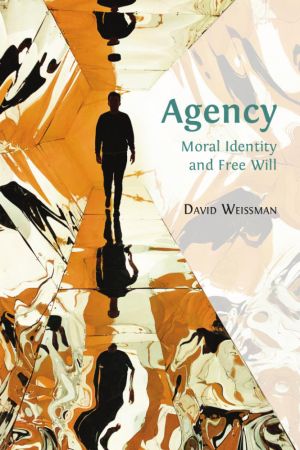Agency: Moral Identity and Free Will
by David Weissman
DescriptionTable of ContentsDetailsHashtagsReport an issue
Agency: Moral Identity and Free Will proposes that deliberation, choice, and free will emerged within the evolutionary history of animals with a physical advantage: organisms having cell walls or exoskeletons had an internal space within which to protect themselves from external threats or encounters. This defense was both structural and active: such organisms could ignore intrusions or inhibit risky behavior. Their capacities evolved with time: inhibition became the power to deliberate and choose the manner of one's responses. Hence the ability of humans and some other animals to determine their reactions to problematic situations or to information that alters values and choices. This is free will as a material power, not as the conclusion to a conceptual argument. Having it makes us morally responsible for much we do. It prefigures moral identity.
Closely argued but plainly written, Agency: Moral Identity and Free Will speaks for autonomy and responsibility when both are eclipsed by ideas that embed us in history or tradition. Our sense of moral choice and freedom is accurate. We are not altogether the creatures of our circumstances. 






Book Description
There is agency in all we do: thinking, doing, or making. We invent a tune, play, or use it to celebrate an occasion. Or we make a conceptual leap and ask more abstract questions about the conditions for agency. They include autonomy and self-appraisal, each contested by arguments immersing us in circumstances we don't control. But can it be true we that have no personal responsibility for all we think and do?Agency: Moral Identity and Free Will proposes that deliberation, choice, and free will emerged within the evolutionary history of animals with a physical advantage: organisms having cell walls or exoskeletons had an internal space within which to protect themselves from external threats or encounters. This defense was both structural and active: such organisms could ignore intrusions or inhibit risky behavior. Their capacities evolved with time: inhibition became the power to deliberate and choose the manner of one's responses. Hence the ability of humans and some other animals to determine their reactions to problematic situations or to information that alters values and choices. This is free will as a material power, not as the conclusion to a conceptual argument. Having it makes us morally responsible for much we do. It prefigures moral identity.
Closely argued but plainly written, Agency: Moral Identity and Free Will speaks for autonomy and responsibility when both are eclipsed by ideas that embed us in history or tradition. Our sense of moral choice and freedom is accurate. We are not altogether the creatures of our circumstances.
This open book is licensed under a Creative Commons License (CC BY). You can download Agency: Moral Identity and Free Will ebook for free in PDF format (15.2 MB).
Table of Contents
Chapter 1
Agency
Chapter 2
Free Will
Chapter 3
Socialization
Chapter 4
Autonomy
Chapter 5
Moral Identity
Book Details
Title
Agency: Moral Identity and Free Will
Publisher
Open Book Publishers
Published
2020
Pages
212
Edition
1
Language
English
ISBN13
9781783748754
ISBN10
1783748753
ISBN13 Digital
9781783748778
ISBN10 Digital
178374877X
PDF Size
15.2 MB
License

Related Books

This volume seeks to further the use of formal methods in clarifying one of the central problems of philosophy: that of our free human agency and its place in our indeterministic world. It celebrates the important contributions made in this area by Nuel Belnap, American logician and philosopher.Philosophically, indeterminism and free action can see...
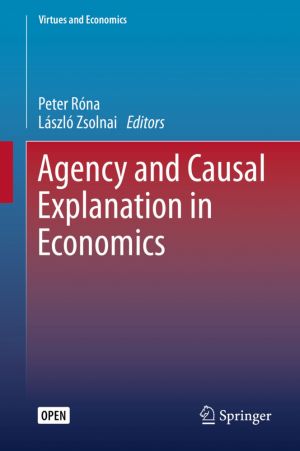
This open access book provides an exploration of the consequences of the ontological differences between natural and social objects (sometimes described as objects of nature and objects of thought) in the workings of causal and agency relationships. One of its important and possibly original conclusions is that causal and agency relationships do no...
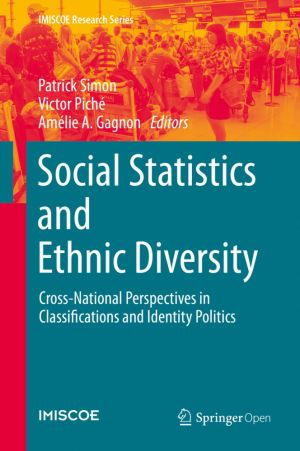
This book examines the question of collecting and disseminating data on ethnicity and race in order to describe characteristics of ethnic and racial groups, identify factors of social and economic integration and implement policies to redress discrimination. It offers a global perspective on the issue by looking at race and ethnicity in a wide vari...
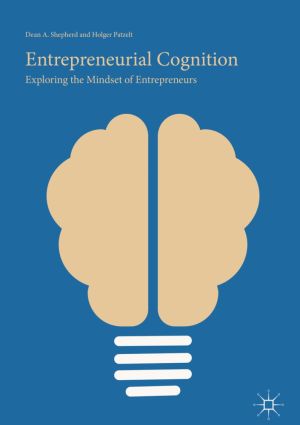
This book investigates the inter-relationship between the mind and a potential opportunity to explore the psychology of entrepreneurship. Building on recent research, this book offers a broad scope investigation of the different aspects of what goes on in the mind of the (potential) entrepreneur as he or she considers the pursuit of a potential op...
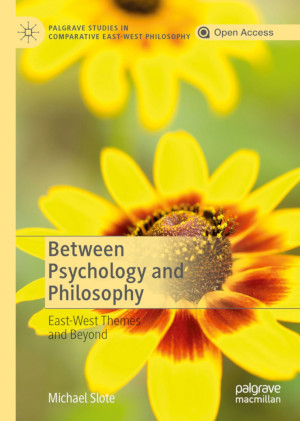
This book discusses a variety of important but unprecedented ways in which psychology can be useful to philosophy. The early chapters illustrate this theme via comparisons between Chinese and Western philosophy. It is argued that the Chinese notion of a heart-mind is superior to the Western concept of mind, but then, more even-handedly, the relativ...

Becoming a Scholar provides a window into the lives of nine non-traditional doctoral students. As mature, part-time, international students enrolled in a professional doctorate programme, they reflect on the transformation process of becoming scholars, and their narratives provide breadth and depth to themes that represent a diverse cross-section o...

